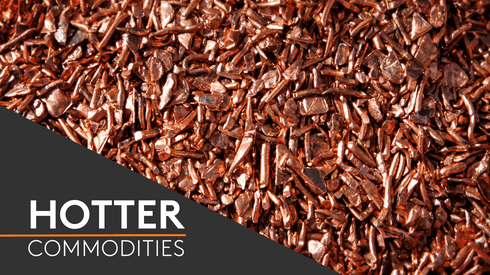The Metal Bulletin Apex forecasts, which measure price expectations, show that while the bullish sentiment in the base metals markets of a year ago has faded considerably, nearly all analysts expect prices to move up moderately through 2012.
Copper prices recorded all-time highs above $10,100 per tonne in the first quarter of 2011, and there were expectations that the market would continue its ascent amid tight supply, rampant Chinese demand and a surge in interest from funds.
At that time, Bank of America Merrill Lynch analyst Michael Widmer was forecasting average cash prices for copper of $11,250 per tonne in 2011, rising to $12,000 per tonne this year.
A year later, Widmer’s forecast for copper prices in the fourth quarter of 2012 stands at $8,500 per tonne, and others have made similarly dramatic downward revisions.
Deutsche Bank’s Daniel Brebner has shaved $5,100 off his forecast for Q1 2012 since Apex began at the beginning of last year. He is now predicting average copper prices of $6,900 per tonne through to March, making him the most bearish of all analysts for this quarter.
But while outright price expectations have slumped in line with the markets over the past year, the trend outlined by analysts remains distinctly bullish.
Of the 19 analysts forecasting prices for the first quarter of 2013, only CICC’s James Luke predicts that prices will have fallen from current levels by this time next year.
Of the other 18, only Widmer expects prices to be below $8,000 per tonne; while Jefferies’ Chris LaFemina, the most bullish analyst, expects prices to lift above $11,000 per tonne in a year’s time.
A year ago, analysts were counting on the structural shortage in the copper market, the possibility that exchange-traded funds would create a new pool of global demand, and the belief that China’s urban developers would buy copper at any price.
A year on, large exchange-traded funds have been delayed and small ones have flopped, the World Bureau of Metal Statistics says the market is in surplus, and China is buying only when the price is right. In part, lower price expectations today are a reflection of these fundamental conditions.
But as Deutsche Bank has recognised recently, analysing metals today is about more than tracking market fundamentals.
“It has become increasingly apparent that asset values are being determined, not by the normal forces of cyclicality or structural change, but by the chaotic vagaries of political decision-making,” Deutsche Bank said in a recent report.
After a year of extreme volatility – with equally violent swings to the upside and downside – this is one of the standout lessons of 2011: there are currently extraordinary forces acting upon the base metals markets, be it the threat of a eurozone meltdown or a hard landing in China.
Deutsche Bank is not alone in recognising this, and the near-universal expectation that copper prices will improve over the next year is, by proxy, a bet that the global economy will improve as well.
The Metal Bulletin Apex rankings will be tracking whether their optimism is justified.
Mark Burton
mburton@metalbulletin.com
Twitter: @mburtonmb




